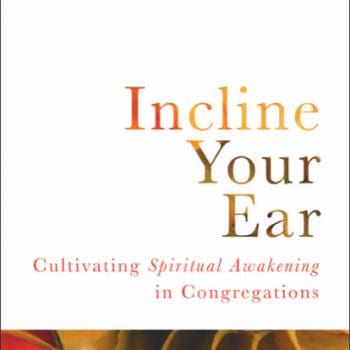With only a few days left before the 2016 Presidential election there are still those who have not yet decided whether to vote for Hillary Clinton, Donald Trump, third party candidates or a write-in candidate. So it’s time for an outline of 5 basic spiritual discernment questions—culled from the writings and teachings of Ignatius of Loyola in the mid-16th century–that may be helpful.

Discernment is the spiritual practice of listening deeply within your heart for God’s wisdom guiding you. It’s about making faithful choices that will help you feel strong and grounded. For Ignatius, as for many Christians, the only goal is to make choices that increase one’s love for and devotion to God. One way to do that is to focus on those deep desires within us—ones that are not ego-driven and flighty but are transcendent and stable.
Here are 5 Ignatian-inspired discernment questions undecided voters may want to ask themselves before casting their vote:
- How have I prayed about this choice? Spiritual discernment needs to be infused with prayer. It’s what makes it more than simple decision-making. Pray in whatever way you pray best, be it silent or with words, inside a quiet room or out in nature, in stillness or in motion. Just do it!
- What, in this election, matters most to me? Spiritual discernment requires awareness. You need to know your values, beliefs, hopes and desires. While it’s probably not the best idea to be a narrow, one-issue voter, it is important that you know what matters most to you. Is it the candidate’s fitness and temperament? Is it their policy stands? Is it what you can determine of their moral compass? It’s common for people at presidential elections to say they feel like they are voting for the “lesser of two evils.” If that is how you feel, then it’s really important that you sort out your non-negotiables.
- What are the pros and cons of each option? In Ignatian-style discernment, practical considerations are paramount. This is where you engage your brain and make a list of the pros and cons of each option you are considering. This will be harder for voters who are considering five candidates and/or a write-in! However, it is necessary and helpful. Get out a pad of paper or index cards and start writing. It’s not just about which column has the most entries, pros or cons. You also need to use judgment to weigh the pros or cons that feel heavier or more important to you. Not all pros and cons are created equal.
- What does my gut say about my choices? You’ve used your spirit in the first question and your mind in the second and third. This is where you check in with your body. Be quiet and still for a few minutes and see how your body feels about each choice. Your intuition contains good information. We don’t necessarily want to make every decision based on a gut feeling, but we want to include our body’s information as part of a whole package of discernment information.
- Which choice is most likely to benefit people who are poor, sick, hungry or otherwise oppressed? Aha, you say. “Now she’s getting political!” Not me, but Ignatius certainly is, inspired by the teachings of Jesus in the gospels—considering “the least of these our brothers and sisters.” Our choices affect not only our lives but the lives of many who may not even be able or allowed to vote in this election. If you take Jesus seriously when he said, “the last shall be first,” then you factor in how your voting privilege affects those who are treated as “last” in our society.
Discernment around a particular choice is not a stalling technique. At some point you must take the leap of faith and make a choice. You still have a few more days before November 8. Why not try on each choice for a day or so and monitor how it feels to support that candidate?
Doing all this is not a guarantee of a perfect choice, but you will have learned some valuable discernment tools and it’s likely you will feel you have made a meaningful and well-measured choice.
May your discernment go well.
Are you interested in being in spiritual direction? I have openings in my schedule for new directees—regardless of where you live. I can work by phone or Skype or if you live in the Phoenix metro area we can meet in person. Contact me at [email protected] or visit www.teresablythe.net. Also visit my website for the Phoenix Center for Spiritual Direction












